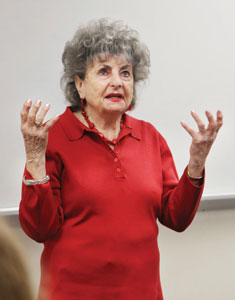 “To life! To life! L’chai-im!”
“To life! To life! L’chai-im!”
On its chai anniversary, it seems appropriate that the Midwest Center for Holocaust Education will celebrate the life of an organization that was born because of the horrors of the Holocaust.
MCHE was founded 18 years ago in 1993 by Holocaust survivors Isak Federman and Jack Mandelbaum. It teaches the history of the Holocaust, applying its lessons to counter indifference, intolerance and genocide. Its programs reach thousands of youths and adults each year through school and community outreach programs, often offered in cooperation with other not-for-profits.
Many are proud of its accomplishments, including Bill Kort, a former president of the board. Besides being a board member, he has a unique perspective as the husband of Regina Kort, the daughter of Holocaust survivors Sonia and the late John Warshawski. John Warshawski and Isak Federman were friends and brothers-in-law as well.
One of the things Kort is most proud of is what MCHE stands for in a time when the country, and the world, is tremendously polarized. By teaching the lessons of the Holocaust, Kort said MCHE can compare the past to the present, addressing what happens when a group becomes polarized, intolerant and unaccepting of other people and their views, their religions or their races.
“Things like the Holocaust do happen and it’s not just the Holocaust as we know it, which was the most terrifying, horrible event of the 20th century. Smaller versions of the same have occurred and continue to occur in places like Rwanda and Darfur. It’s up to us to speak out and let people know what happens when we as a people or other nations as people become intolerant and fearful of their neighbors or those who are different,” Kort said.
MCHE’s success stories
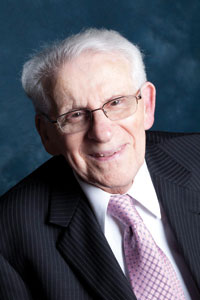 Jean Zeldin has served as MCHE’s one and only executive director for the beginning. An educator herself, when the doors opened in August 1993, she said they “hit the ground running,” knowing how urgent it was to begin their first project — the oral recordings of witnesses.
Jean Zeldin has served as MCHE’s one and only executive director for the beginning. An educator herself, when the doors opened in August 1993, she said they “hit the ground running,” knowing how urgent it was to begin their first project — the oral recordings of witnesses.
That project, Witnesses to the Holocaust, produced video testimonies of nearly 50 eyewitnesses (all of which have now been digitized). The Fortunoff Video Archive for Holocaust Testimonies at Yale University helped train volunteer interviewers. The project took 16 months to complete and years later, as more and more survivors pass away, they are still used today.
“From those testimonies, two documentaries have also been created — one for classroom use and one for community use,” Zeldin said.
Those testimonies have also served as a basis for other thematic programs.
“I really think that one of our greatest successes is the recording of those testimonies and the educational use that we have made of those,” Zeldin said. “We did have that sense of urgency. Many of the survivors that participated had not spoken before, but I think they felt that sense of urgency as well and that this could be their contribution to posterity.”
Zeldin also points to the Portrait 2000 exhibit, displayed at the Jewish Community Campus and Union Station, and the book “From the Heart,” that came from that, published by Kansas City Star books in 2001, as other successful projects.
“We have collected what I have called a treasure trove of memories and we keep going back to that as a core of our educational programming,” Zeldin said.
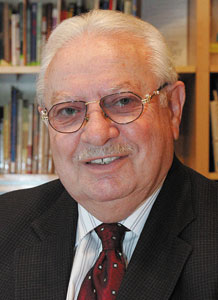 It is no mistake that education is part of MCHE’s name. Blanche Sosland, a former MCHE president who also served on the original board of directors, pointed out that it was very important to the founders that the organization would not be a museum.
It is no mistake that education is part of MCHE’s name. Blanche Sosland, a former MCHE president who also served on the original board of directors, pointed out that it was very important to the founders that the organization would not be a museum.
“It should be a living organization providing education, which it does very well,” Sosland said.
Teacher education is indeed something MCHE takes pride in. One important program is the Isak Federman Holocaust Teaching Cadre, which is currently comprised of 18 teachers. They meet monthly to continue their own education as well as provide education for other teachers, post articles to the educator’s blog and create lesson plans posted on the MCHE website.
In addition, Zeldin said MCHE has been recognized by the Jewish Foundation for the Righteous in New York as a center of excellence. As such, MCHE has been invited to become a training hub — one of 10 centers nationwide — for curriculum called Echoes in Reflections and designed in a collaborative effort by the Anti-Defamation League, the USC Shoah Foundation Institute and Yad Vashem.
Collaboration and cooperation
MCHE has always tried to partner with other not-for-profits in the community. In the beginning, MCHE always had to search for partners; now other organizations are inviting MCHE to join them. Over the years relationships have been established a large assortment of partners including the Kansas City Public Library, Kemper Museum, Truman Library, Eisenhower Library, Rockhurst University, Science City, University of Missouri-Kansas City, Negro Leagues Baseball Museum and the American Jazz Museum.
“We know we are a visible presence in the community and we’re recognized for the work that we do. The fact that we have been able to take our message not only to the Jewish community but to the general community through these partnerships is something that we’re very proud of,” Zeldin said.
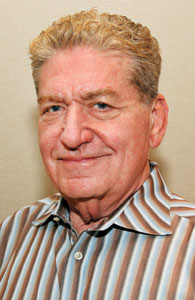 The relationship MCHE has had with the non-Jewish community dates back to its first project. For example in addition to seed money provided by the founders, funding for Witnesses to the Holocaust was provided by grants from the William T. Kemper Foundation, the David Woods Kemper Memorial Foundation and the Oppenstein Brothers Foundation.
The relationship MCHE has had with the non-Jewish community dates back to its first project. For example in addition to seed money provided by the founders, funding for Witnesses to the Holocaust was provided by grants from the William T. Kemper Foundation, the David Woods Kemper Memorial Foundation and the Oppenstein Brothers Foundation.
Blanche Sosland, a former MCHE president who served on the original board of directors, noted that it was key from the very beginning that MCHE not solely be a Jewish organization.
“James Kemper of Commerce Bank told us the mission of this organization has to be a mission for every member of our community. He said that 18 years ago and it still rings in my ears and that was accomplished,” Sosland said.
In fact MCHE’s board pulls from a very diverse cross section of the community and, Zeldin said, at least a quarter of its members are not Jewish.
“Virtually every religion, race and creed is represented on the board. Of all the boards that I’ve been on, this is a board where a quorum is never a problem,” Sosland said.
Zeldin said that in addition to the passion of its board, MCHE has been able to successfully carry out its mission due to its “small, but mighty staff” which can adapt to a variety of duties and help each other when the need exists.
Zeldin said she and the staff — Frances G. Sternberg, Ph.D., director of university programs and adult education; Jessica Rockhold, director of school programs and teacher education; Laurel Maslowski, evening resource assistant; and Dana Smith, executive assistant — are all honored to be entrusted with the vision of the founders and the board.
“Working at MCHE is more than a job. It is also a personal mission and commitment. It is a privilege and an honor to have that trust and we all take that very seriously,” Zeldin said.
An extended community
Sosland said that MCHE really serves the entire Midwest.
“It is a center in the true sense of the word and, of course, the Holocaust is a very difficult but a very inclusive subject,” she said.
Besides being in the Midwest, another geographic distinction is that it is located between the Independence, Mo., and Abilene, Kan., homes of the Truman and Eisenhower museums respectively. Both of those presidents are historically linked to the Holocaust.
That’s a fact that intrigues Kort.
“Someday another president may come from this neck of the woods. Maybe that person happened to sit in on a class presented by an MCHE-trained teacher on the subject of the Holocaust, indifference or man’s potential to do inhuman things to other men over differences of opinion,” Kort said.
Following the anniversary celebration, Zeldin said MCHE will embark on a new strategic plan. As it continues celebrating, Art Federman, a former president and son of founder Isak Federman, said now is also a good time “to refocus all of our energy on the work that still remains to be done.”
“MCHE has made a lot of progress in using the lessons of the Holocaust to teach others of the need to confront hatred and bigotry, but we still have a long way to go,” Federman said.
Hamlisch tickets still available
The legendary Marvin Hamlisch will be in Kansas City Nov. 3 as the featured performer at MCHE’s 18th Anniversary Celebration. The event, which will also honor the Kansas City Jewish community’s Holocaust survivors, begins at 7:30 p.m. in Helzberg Hall at the Kauffman Center for the Performing Arts. For information on patron opportunities and donor tickets, visit www.mchekc.org, call 913-327-8192 or email .
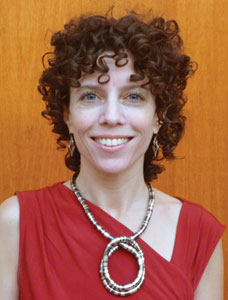 Nicole Abrahamson is happy to tell you all the reasons why you should become a member of the Jewish Community Center. As a member of the JCC’s membership team, it’s her job to sell the services of the agency — and she truly believes in what she is doing.
Nicole Abrahamson is happy to tell you all the reasons why you should become a member of the Jewish Community Center. As a member of the JCC’s membership team, it’s her job to sell the services of the agency — and she truly believes in what she is doing.


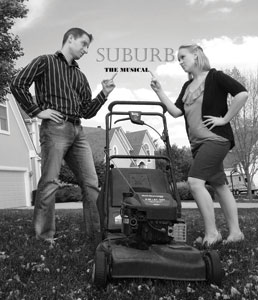 ‘SUBURB’ THE MUSICAL — Benjamin Baellow has the male lead in the upcoming production of “Suburb,” a musical written by David Javerbaum and Bob Cohen. It will be presented at the City Theatre of Independence beginning today, Nov. 3. It will run this weekend (Nov. 4, 5 and 6) and next weekend (Thursday, Nov.10, through Sunday Nov. 13). The musical is described as one that “takes an insightful, witty and nuanced view of the world of the lawnmower, the barbecue and the mall, exploring the suburb’s rites and rituals. The stories of four people — interwoven with the chorus’s frequent musical reveries on subjects like mowing the lawn, shopping at the mall and the perfection of perfectly grilled meat — form the road map of ‘Suburb.’ ” It’s gotten good reviews, including this one by the Houston Press: “(A) musical love note to the land of wide green lawns, shopping malls and do-it-yourselfers.”
‘SUBURB’ THE MUSICAL — Benjamin Baellow has the male lead in the upcoming production of “Suburb,” a musical written by David Javerbaum and Bob Cohen. It will be presented at the City Theatre of Independence beginning today, Nov. 3. It will run this weekend (Nov. 4, 5 and 6) and next weekend (Thursday, Nov.10, through Sunday Nov. 13). The musical is described as one that “takes an insightful, witty and nuanced view of the world of the lawnmower, the barbecue and the mall, exploring the suburb’s rites and rituals. The stories of four people — interwoven with the chorus’s frequent musical reveries on subjects like mowing the lawn, shopping at the mall and the perfection of perfectly grilled meat — form the road map of ‘Suburb.’ ” It’s gotten good reviews, including this one by the Houston Press: “(A) musical love note to the land of wide green lawns, shopping malls and do-it-yourselfers.” 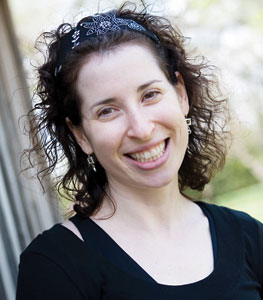 A portrait of yoga instructor Shanna Haun published in the Fall 2011 edition of Jewish Life Magazine was incorrectly credited. It was taken by Sara Farrar.
A portrait of yoga instructor Shanna Haun published in the Fall 2011 edition of Jewish Life Magazine was incorrectly credited. It was taken by Sara Farrar.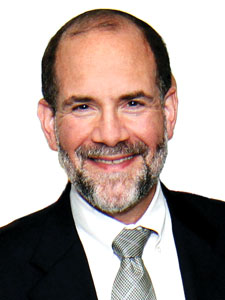 The West Coast Rav was the brainchild of Rabbi Jonathan I. Rosenblatt, the senior rabbi of the Riverdale Jewish Center, a diverse and dynamic Zionist Orthodox synagogue community of some 700 families located in the Bronx, N.Y. Rabbi Rosenblatt will arrive in Kansas City several days before the meeting to serve as BIAV’s scholar in residence Nov. 4 and 5 and be the featured presenter at Schmooze with the Jews at the Zoo: A family happening! (For more information on these events, see below.)
The West Coast Rav was the brainchild of Rabbi Jonathan I. Rosenblatt, the senior rabbi of the Riverdale Jewish Center, a diverse and dynamic Zionist Orthodox synagogue community of some 700 families located in the Bronx, N.Y. Rabbi Rosenblatt will arrive in Kansas City several days before the meeting to serve as BIAV’s scholar in residence Nov. 4 and 5 and be the featured presenter at Schmooze with the Jews at the Zoo: A family happening! (For more information on these events, see below.)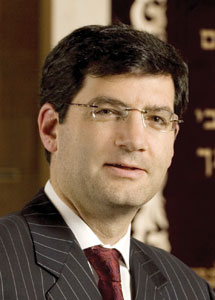 Following Rabbi Rosenblatt’s suggestion, Rabbi Weil invited young rabbis from Vancouver, British Columbia, Canada, down to San Diego to visit Los Angeles for a few days.
Following Rabbi Rosenblatt’s suggestion, Rabbi Weil invited young rabbis from Vancouver, British Columbia, Canada, down to San Diego to visit Los Angeles for a few days.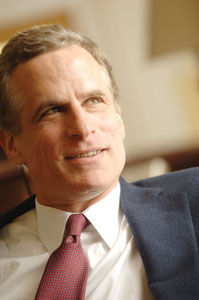 KC native, KU graduate and Harvard professor Robert S. Kaplan can add his name to a prestigious list of political and business leaders — former Presidents George H.W. Bush and Bill Clinton, Supreme Court chief Justice John Roberts, Vice-President Joe Biden; former Secretary of State Madeleine Albright and NBC Anchor Tom Brokaw to name just a few — when he speaks at the Dole Institute on Nov. 17. (See below for more information.)
KC native, KU graduate and Harvard professor Robert S. Kaplan can add his name to a prestigious list of political and business leaders — former Presidents George H.W. Bush and Bill Clinton, Supreme Court chief Justice John Roberts, Vice-President Joe Biden; former Secretary of State Madeleine Albright and NBC Anchor Tom Brokaw to name just a few — when he speaks at the Dole Institute on Nov. 17. (See below for more information.)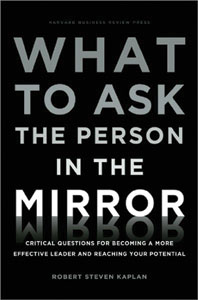 The book is No. 2 on Inc.com’s list of bestsellers for business executives and has been for the past three months. It’s gotten excellent reviews and is recommended to all levels of leadership from volunteers all the way to CEOs.
The book is No. 2 on Inc.com’s list of bestsellers for business executives and has been for the past three months. It’s gotten excellent reviews and is recommended to all levels of leadership from volunteers all the way to CEOs. Dancing, dining and celebrating the works of one of the most important figures in American dance will be on tap for the Kansas City Friends of Alvin Ailey’s Gala 2011. KCFAA presents Alvin Ailey American Dance Theater at the Kauffman Center for the Performing Arts from Wednesday, Nov. 16, through Saturday, Nov. 19. Performance week culminates Saturday evening with Gala 2011.
Dancing, dining and celebrating the works of one of the most important figures in American dance will be on tap for the Kansas City Friends of Alvin Ailey’s Gala 2011. KCFAA presents Alvin Ailey American Dance Theater at the Kauffman Center for the Performing Arts from Wednesday, Nov. 16, through Saturday, Nov. 19. Performance week culminates Saturday evening with Gala 2011.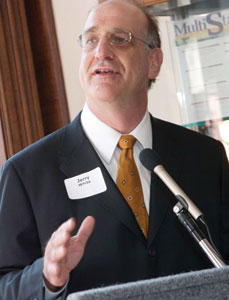 WHITE SCHOLARSHIP — The UMKC Bloch School of Management’s Lewis White Real Estate Center and the family of Lewis White announced the formation of the Walter S. Clements Endowed Scholarship to support graduate real estate education at the White Center, specifically the new Master of Entrepreneurial Real Estate. The Lewis White Center is the only provider of graduate real estate education in the region. The family of Lewis White has made a gift of $50,000 for a scholarship named after Walter S. Clements, director of the Lewis White Real Estate Center. Jerry White, son of the late Lewis White, noted one reason the scholarship is named after Clements is because “He brings outstanding experience to the Bloch School and was able to quickly develop a successful real estate program from the ground up, which has been extremely well-received by the real estate community.”
WHITE SCHOLARSHIP — The UMKC Bloch School of Management’s Lewis White Real Estate Center and the family of Lewis White announced the formation of the Walter S. Clements Endowed Scholarship to support graduate real estate education at the White Center, specifically the new Master of Entrepreneurial Real Estate. The Lewis White Center is the only provider of graduate real estate education in the region. The family of Lewis White has made a gift of $50,000 for a scholarship named after Walter S. Clements, director of the Lewis White Real Estate Center. Jerry White, son of the late Lewis White, noted one reason the scholarship is named after Clements is because “He brings outstanding experience to the Bloch School and was able to quickly develop a successful real estate program from the ground up, which has been extremely well-received by the real estate community.”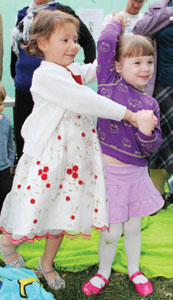 Correction
Correction “To life! To life! L’chai-im!”
“To life! To life! L’chai-im!” Jean Zeldin has served as MCHE’s one and only executive director for the beginning. An educator herself, when the doors opened in August 1993, she said they “hit the ground running,” knowing how urgent it was to begin their first project — the oral recordings of witnesses.
Jean Zeldin has served as MCHE’s one and only executive director for the beginning. An educator herself, when the doors opened in August 1993, she said they “hit the ground running,” knowing how urgent it was to begin their first project — the oral recordings of witnesses. It is no mistake that education is part of MCHE’s name. Blanche Sosland, a former MCHE president who also served on the original board of directors, pointed out that it was very important to the founders that the organization would not be a museum.
It is no mistake that education is part of MCHE’s name. Blanche Sosland, a former MCHE president who also served on the original board of directors, pointed out that it was very important to the founders that the organization would not be a museum. The relationship MCHE has had with the non-Jewish community dates back to its first project. For example in addition to seed money provided by the founders, funding for Witnesses to the Holocaust was provided by grants from the William T. Kemper Foundation, the David Woods Kemper Memorial Foundation and the Oppenstein Brothers Foundation.
The relationship MCHE has had with the non-Jewish community dates back to its first project. For example in addition to seed money provided by the founders, funding for Witnesses to the Holocaust was provided by grants from the William T. Kemper Foundation, the David Woods Kemper Memorial Foundation and the Oppenstein Brothers Foundation.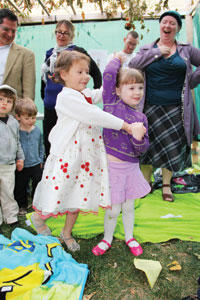 It’s music to a mother’s ear, especially if she’s a rabbi, too, when she hears her young child sing “Shema Yisrael …”
It’s music to a mother’s ear, especially if she’s a rabbi, too, when she hears her young child sing “Shema Yisrael …” Jimmy Rosenbloom has been to Israel at least a dozen times. The last two times he participated in The Arava Institute and Hazon Israel Ride. Eddie Meltzer enjoyed hearing about those bicycle rides so much that this year he asked Rosenbloom, his life-long friend, to join him on the ride that takes place from Nov. 8 to 15. It includes an orientation session in Jerusalem, five riding days and Shabbat in Mitzpe Ramon. A colleague of Meltzer’s, Larry Seltzer from New York, will also ride with them.
Jimmy Rosenbloom has been to Israel at least a dozen times. The last two times he participated in The Arava Institute and Hazon Israel Ride. Eddie Meltzer enjoyed hearing about those bicycle rides so much that this year he asked Rosenbloom, his life-long friend, to join him on the ride that takes place from Nov. 8 to 15. It includes an orientation session in Jerusalem, five riding days and Shabbat in Mitzpe Ramon. A colleague of Meltzer’s, Larry Seltzer from New York, will also ride with them.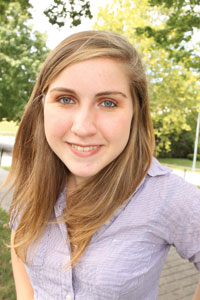 Hanna Katz isn’t an average student at St. Teresa’s Academy. However, being the school’s only Jewish student is something she takes in stride.
Hanna Katz isn’t an average student at St. Teresa’s Academy. However, being the school’s only Jewish student is something she takes in stride.